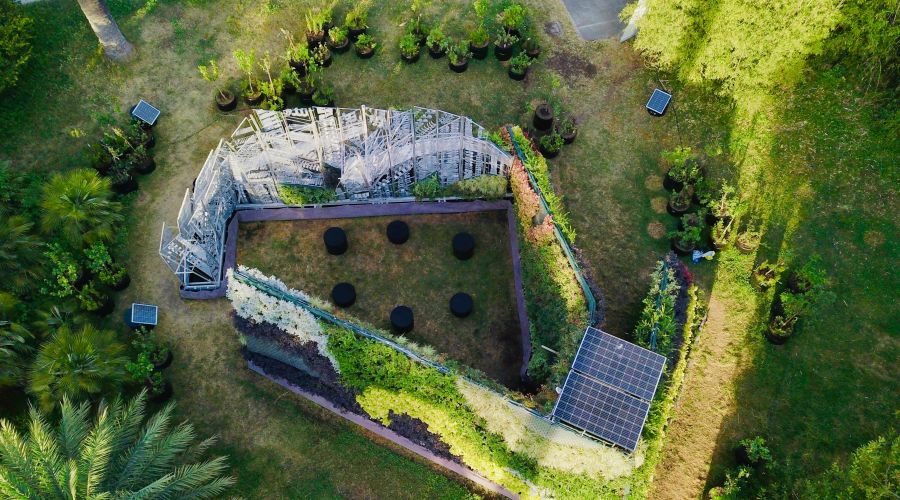
Gillean Denny has led the design of a Living Chapel in Italy, a symbol of hope for the ecological awakening of humanity.
We hope that, in the current global context, the Living Chapel will stand as a symbol of hope for the ecological awakening of humanity.
Gillean Denny
A Gates Cambridge Alumna has led the design of a Living Chapel in Italy, bringing together concepts of Nature, Art, Music and Architecture to inspire people to join together in caring for the world.
The sacred space of serene harmony was inspired by Saint Francis of Assisi, Pope Francis, and the UN’s Sustainable Development Goals. Despite the coronavirus pandemic, it made its official digital debut on 5th June, UN World Environment Day 2020.
Designing and building the Living Chapel was an international, mostly volunteer effort, led by architectural designer and Gates Cambridge Alumna, Dr Gillean Denny.
The Living Chapel aims to encourage worldwide acts of ecological restoration, with an emphasis on tree-planting in support of the UN Trillion Tree Campaign.
Gillean [2008] says: “Through the creation of Laudato Si’ Gardens and Living Sacred Spaces globally, the Living Chapel will encourage collaboration to protect and rehabilitate the natural environment through concrete actions. Having assembled the Chapel during the challenging circumstances of early 2020, we hope that, in the current global context, the Living Chapel will stand as a symbol of hope for the ecological awakening of humanity.”
After its installation in Rome, the chapel will be permanently moved to Assisi.
The idea for the Chapel came from Australian-Canadian music composer Julian Darius Revie. It was largely built by faculty and students from the Department of Architecture within the Stuckeman School at The Pennsylvania State University, led by James Kalsbeek, and the Department of Welding & Metal Fabrication at Pennsylvania College of Technology, led by James Colton II.
Gillean won a Gates Cambridge Scholarship for both her MPhil in 2007 and her PhD after spending five years studying architecture at Penn State University. Her PhD sought to understand the disparity in greenhouse gas emissions associated with traditional produce production, distribution and consumption and that of urban agriculture.
*More information about the Living Chapel project can be found at https://livingchapel.com/ and Gillean has made a video about the project here.

Gillean Denny
- Alumni
- United States
- 2007 MPhil Environmental Design in Architecture
2008 PhD Architecture - Jesus College
Continuing from my MPhil research in sustainability and urban planning, my current PhD work seeks to determine the direct impact of Urban Agriculture on an individual’s ecological footprint. In the wider world of art and design, theatre sets, the Jesus May Ball, the culinary arts, and my own sketchbook make my days in Cambridge a true joy.












